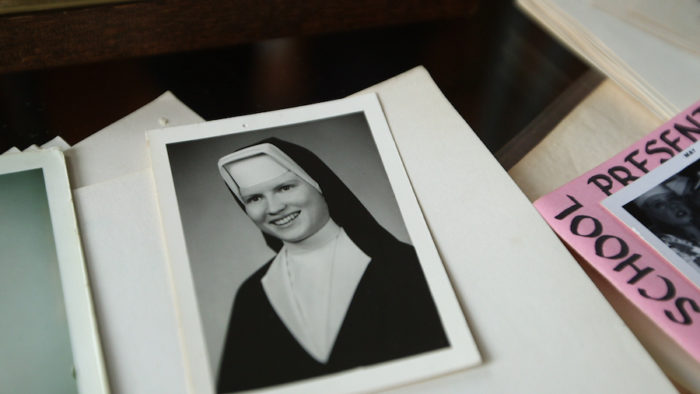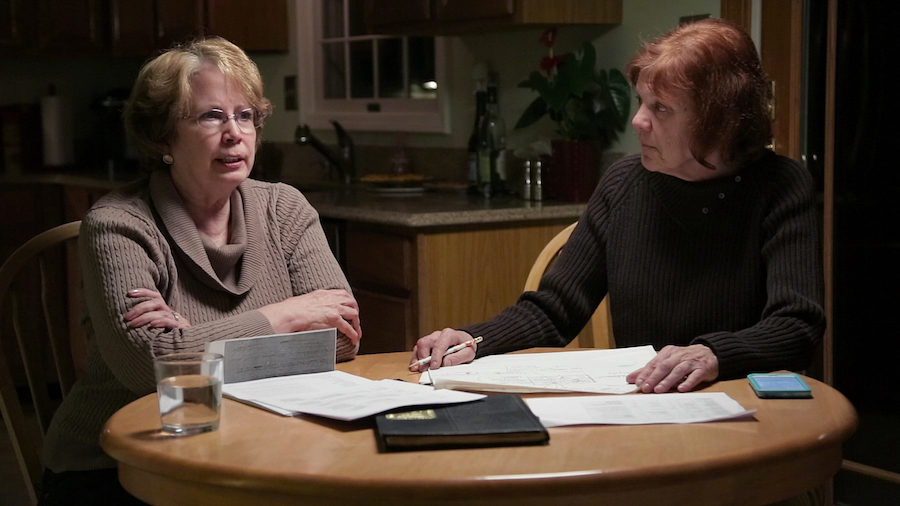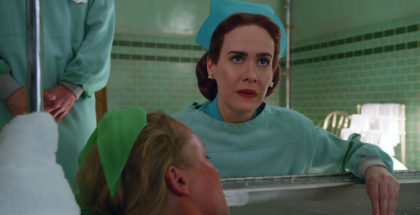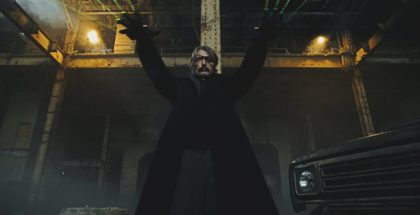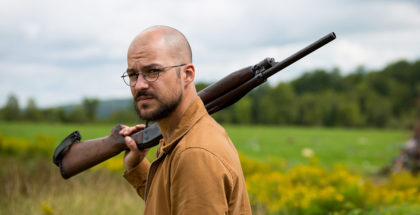Netflix UK TV review: The Keepers
Review Overview
Revelations
9Respect
9Righteous anger
9David Farnor | On 19, May 2017
“It was like a puzzle trying to put this thing together,” we’re told in The Keepers, Netflix’s new true crime documentary. Those last five words are enough to make anyone sit up and pay attention – ever since Making a Murderer in 2015, people have been clamouring for another addictive uncovering of old mysteries and serving of fresh justice. If Making a Murderer was one of the best TV shows of that year, The Keepers might be better.
The reason why comes down to the crucial difference between the two: the documentary series about Steven Avery re-examined a murder from years before, protesting a convicted man’s innocence; The Keepers, on the other hand, focuses on the victim of a crime, aiming to find justice of a very different kind. One is a programme that lets you play amateur detective. The other celebrates the people on screen doing the detecting.
Our investigators are Gemma Hoskins and Abbie Schaub, who are investigating the death of Sister Cathy Cesnik, a nun at the Archbishop Keough High School. She was found dead in 1969, weeks after she went missing, but her murderer has never been found. Our entry into the case comes from journalist Tom Nugent, who is rooting around his attic and digs out the clippings of a report he wrote at the time. That sense of people nosing through history out of need for entertainment or out of sheer curiosity is a familiar one for true crime enthusiasts, but we soon discover that Hoskins and Schaub have a reason for what they’re doing: they were both students at the school, where Cesnik inspired them with her happy energy and the kind of defiant streak that led to her teaching The Scarlet Letter. Why, then, was such a friendly person killed?
The Keepers takes its time to deliver a gut-punching blow to the stomach, one that arrives after we’ve spent an hour getting to know Hoskins and Schaub, won over by their affection for their lost teacher and their passionate devotion to solving her death. They go about their business with an immediate charm, cheerfully chatting up people who might be able to give them new information before poring studiously over papers on the kitchen table.
There’s a confidence and patience to the story-telling, one that pauses calmly at the end of its opening chapter to ask openly: how does this story begin?
Warning: The below contains spoilers for Episode 2.
The answer turns the inquisitive mood into one of horror, as we move away from Cesnick to focus on another woman who was at the school around the same time. Identified, at first, only as Jane Doe, she was a pupil who attended lessons dutifully, who knew Cesnick and who had no bad words to say about her time there. Decades later, though, she came forward with an allegation: that Father Joseph Maskell, a teacher at the school, raped and molested her.
Director Ryan White, who recently helmed The Case Against 8 – profiling the long, passionate legal battle against California’s Proposition 8, which banned gay marriage – shows the same care, attention and sensitivity towards his subjects here, as he teases out the harrowing details of what happened to Jane. And, we’re soon told, what happened to many other pupils, who also come forward with their own, similar allegations. Doe recalls, in one of the most disturbing scenes in the documentary, how she was taken to see Cesnick’s body in a field, before being warned that’s what happens to those who say bad things about other people.
White is a masterful documentarian, able to balance the need for storytelling and sympathy and, well, balance. Episode 4 zooms out from the school (drone shots over Baltimore bring a visible relief after claustrophobic black-and-white shots of corridors, lockers and clasped hands) to question how the city and diocese of Baltimore could possibly cover up such a scandal, while also politely questioning the reliability of Jane Doe’s repressed memories, which came rushing back so many years afterwards. The fuzzy monochrome footage and intensity of the close-ups serve the dual purpose of adding drama and tension, while also underlying the caution the filmmakers had to take in presenting Doe’s accounts.
Nonetheless, as records from Hopkins Hospital, an institute for “depressed priests”, and other testimonies mount up, there seems little doubt about what happened – and that escalating realisation makes for a powerful companion piece to the Oscar-winning Spotlight, an expose that will fill any viewer with righteous fury. With events taking place so long ago, there’s perhaps a lack of immediate villains to direct that anger towards, but White keeps our attention firmly on the girls at the school, on Cesnick’s plausibly connected fate and the people attempting to join the dots between the two. Hoskins and Schaub’s enthusiasm winds up taking on a whole new quality, as they become not just amateur sleuths but crusaders fighting for a voice to be given to victims who have been unheard and neglected for years. By taking an active role in the narrative themselves, there’s an uplifting portrayal of Cesnick’s former pupils not as victims but as people who have grown up to actively take control of their own story.
White sets up cliffhangers at the end of every episode without fail, but escapes the feeling that he’s exploiting their story for the sake of entertainment, partly thanks to the series’ meticulously slick production values – set aside seven hours: you’re going to need them – and partly thanks to its gentle, respectful handling of each new witness. The result is a true crime documentary that doesn’t just have one victim, but several, which captures a shocking big picture without losing sight of the personal, human impact at its heart. As for The Keepers themselves? They could easily be the secret conspirators holding the keys to a truth long since locked away, but they could also be those honouring Cesnick’s memory, keeping the proverbial flame of justice burning. This is scorching, arresting viewing, as moving as it is gripping and as cathartic as it is compelling. Will the puzzle ever be solved? At the halfway point, as more shady figures come into the spotlight, Cesnick’s unsolved murder looks set to remain that way, but you’ll be glad that someone is trying to put it together in the first place.
The Keepers is available on Netflix UK, as part of an £9.99 monthly subscription.


